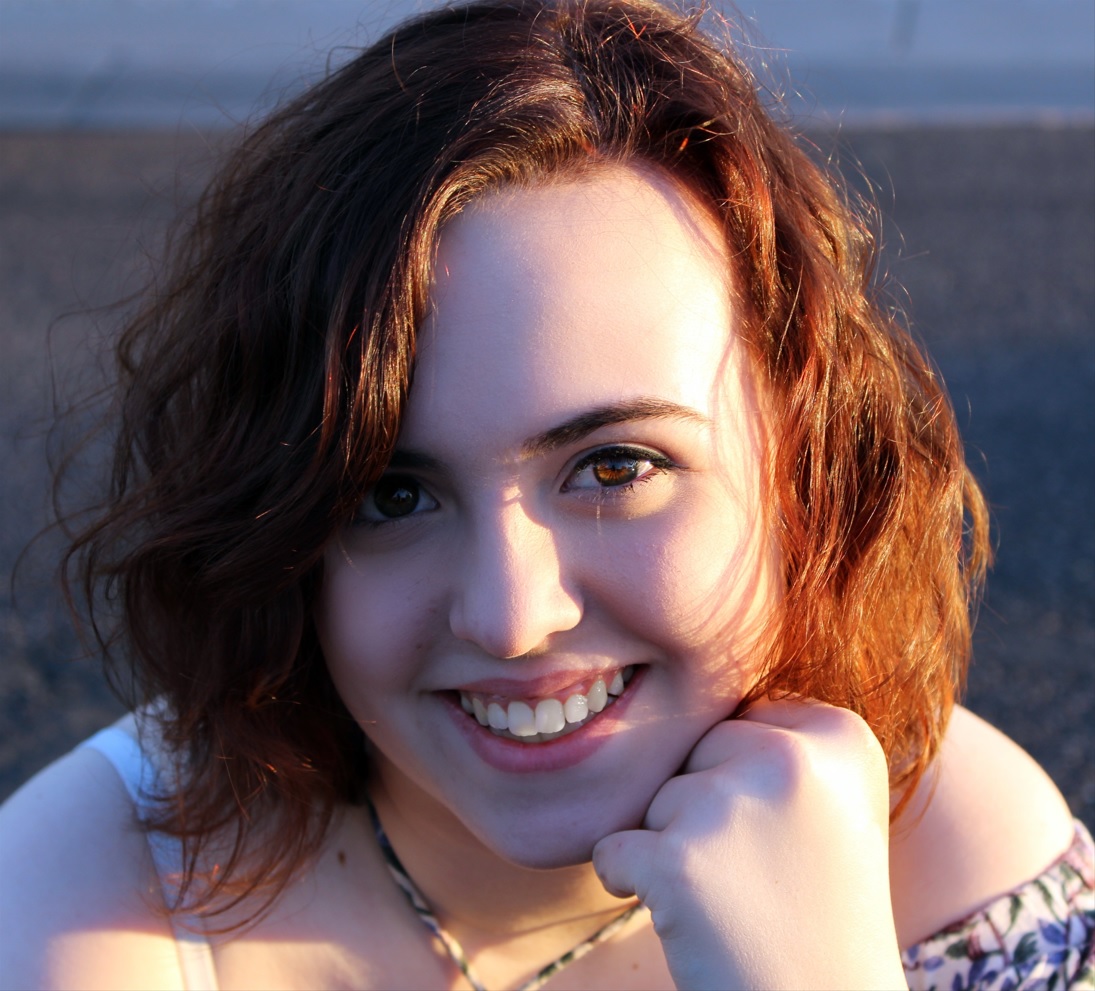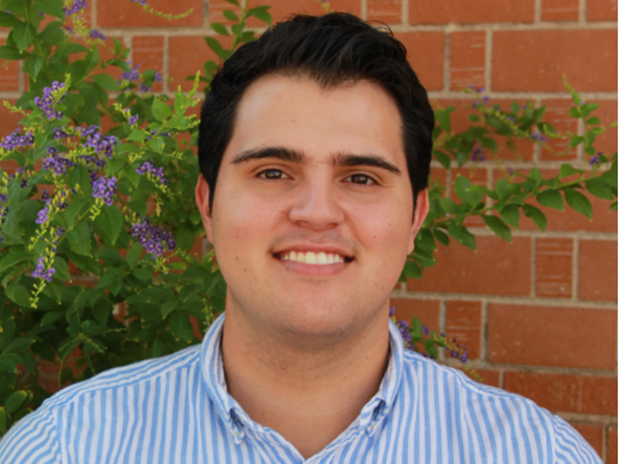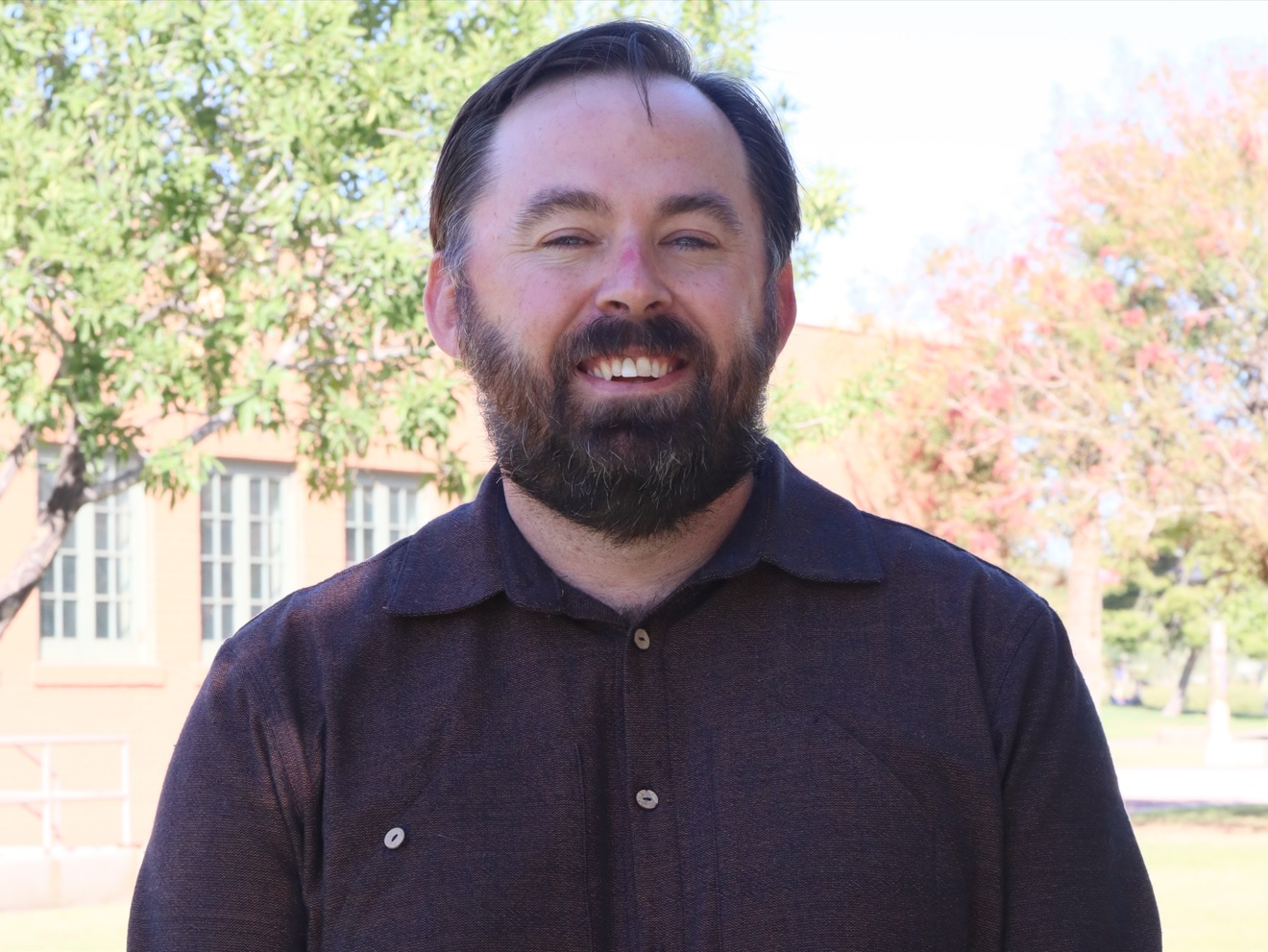Public Allies Arizona empowers participants to expand efforts to manage, support nonprofits
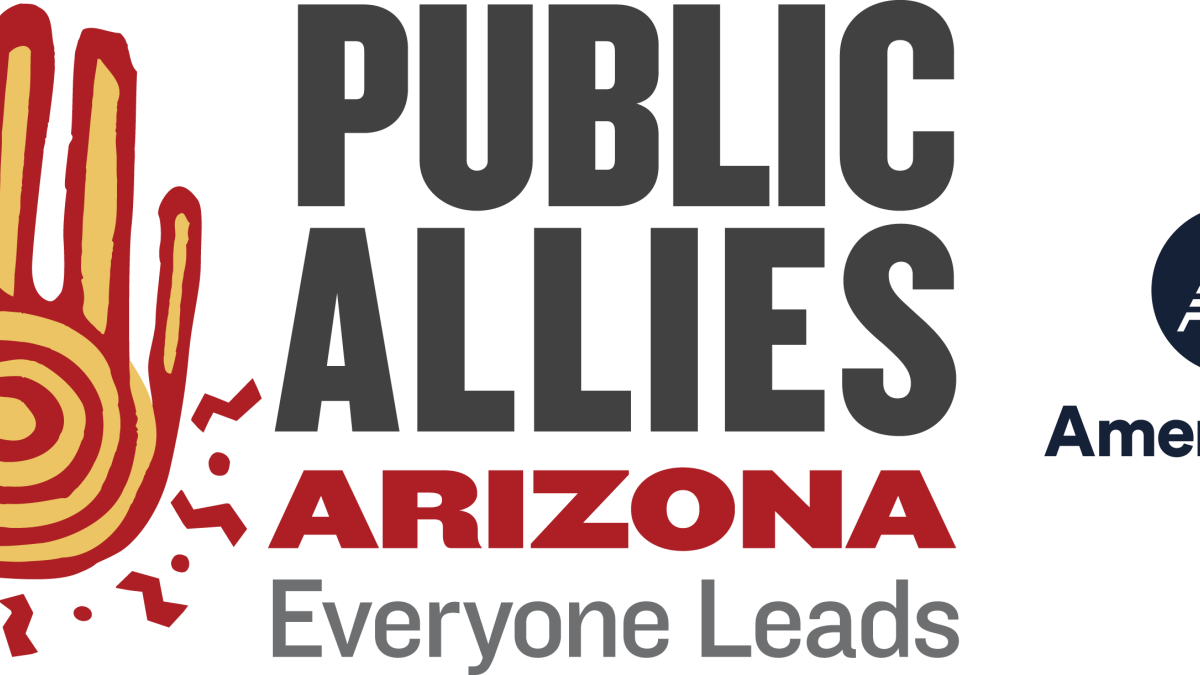
Courtesy Public Allies Arizona
In 2005, Arizona State University’s then-six-year-old Lodestar Center for Philanthropy and Nonprofit Innovation was looking for ways to strengthen its already highly effective abilities to recruit and prepare diverse leaders for the nonprofit sector.
At the same time, the Public Allies national office was seeking to expand its well-respected leadership model into new areas of the country, Lodestar Executive Director and Saguaro Professor of Civic Enterprise Robert Ashcraft discovered during a meeting with a Public Allies senior staffer at a W.K. Kellogg Foundation grantee meeting (the foundation is a supporter of Public Allies).
From that meeting in 2005 began successful efforts the following year to add Public Allies to Lodestar’s wide array of programs to further empower those who lead, manage and support nonprofits.
The 10-month Public Allies Arizona program, partly funded by AmeriCorps, is now offered in both Phoenix and Tucson. Participants need not be ASU students to enroll and complete it.
Ashcraft said the program has expanded “exponentially” since 2006, adding to the knowledge and expertise of both its instructional team and its alumni with each passing year. More than 400 "allies" had graduated from the program as it entered its 17th year in 2022. Graduates have served in more than 100 nonprofit and public organizations.
More than $6.2 million in federal AmeriCorps grants have been earned since the program's inception in Arizona, with an additional $12.5 million raised in local match support over that same time to fund the nearly yearlong apprenticeships.
Through paid, work-based learning with local nonprofit, social service and government agencies, allies advance community services and address real local needs. Once the program concludes, each ally receives an AmeriCorps Education Award to further their education or pay back student loans.
“Our Public Allies Arizona program exemplifies an asset-based approach to community development evidenced by how our allies, partner organizations and university partner to improve overall well-being for all who are touched by this remarkable program,” Ashcraft said. “We are profoundly grateful to AmeriCorps, the Public Allies national office and local partners for all the ways they support us and invest in our proven community well-being leadership strategy. The stories of impact from this program are, indeed, most transforming and everlasting.”
The Lodestar Center recently received a grant award from Bank of America to support the Public Allies Arizona National Service and Workforce Development initiative. The initiative taps into the unrealized power and potential of the diverse, emerging leaders who are Public Allies Arizona members or alumni, many of whom come from disadvantaged or overlooked communities, according to a June 28 Lodestar Center statement.
Fourteen spring 2022 Public Allies — seven each from the Phoenix and Tucson programs — graduated in June.
Two graduates — Molly McIntyre of the Phoenix program and Luis Placencia of the Tucson program — and recent Public Allies Arizona alumnus Bob Purvis talked about the value of the experience to them and those they hope to serve.
McIntyre’s internship was with the Boys and Girls Clubs of the Valley while Placencia’s was with Esperança, a Tucson-based health equity organization. As part of the allies program’s requirements, each made a “presentation of impact” video summarizing their experiences that can be found here, along with videos produced by all the other 2022 graduates. Today, Purvis is program coordinator for ASU’s Office of Community Health, Engagement, and Resiliency in Tucson.
Molly McIntyre
Question: How did you hear about the Public Allies Arizona program? What about it, or about you, led you to want to participate?
McIntyre: During my collegiate career, I was a part of a scholarship program previously known as College Success Arizona – now known as Education Forward Arizona (EdForwardAZ). It’s a cohort-based program that works to help first-generation students and low-income families enroll in college and supports them all the way through graduation. Each year, EdForwardAZ holds a leadership symposium aimed toward boosting leadership skills and introducing their students to different career paths, and one of the organizations they brought in to speak happened to be Public Allies Arizona! At the time, I was about to graduate, and I was filled with the desire to get out there and put my skills to the test.
Placencia: I had always been involved in my community, but I honestly wanted to do one last thing. I found out about Public Allies through my school and researched other people’s impact in their community, the organizations they worked with and the connections they could make — all the benefits that come with the program. Another motivation was my father’s passing away. He was always a giving person for his community and a role model for me growing up, so when he passed away last year, I wanted to do one more thing under his name. I felt it was kind of a calling.
Purvis: I was looking at graduate programs related to mental health counseling or social work. I felt as though I didn't have the experiences many of them required and that I didn't know how to take the first steps toward such a new community-focused path. Beyond that, I wondered if I would be good at it. Public Allies gave me the opportunity to enmesh myself in my community and gain experience and confidence in exploring this new path.
Q: Describe your community projects, and tell us what you gained from the experience.
McIntyre: Bridges to BOW (Becoming an Outdoors Woman) was truly an amazing experience, and I’m grateful I got the chance to participate in such a meaningful project. Bridges to BOW is a team service project (in partnership with Arizona Wildlife Federation and the Becoming an Outdoors Woman program) to help younger, underrepresented women get the chance to experience the outdoors in a safe, accepting and empowering environment. Becoming an Outdoors Woman is a three-day, weekend camping program for women that offers a variety of classes on the outdoors, ranging from birding to archery. My team worked together to find ladies interested in participating, getting to know them and their aspirations, and ultimately paving their way into the BOW program through the cohort method.
This experience really allowed me to go beyond learning how to lead; I had the chance to build lifelong connections while really listening to understand the hardships these women face. I have become a part of what is a program based on equity and safety, and will forever stay connected in hopes to pay it forward.
Luis Placencia
Placencia: I was partnered with Esperança, joining their marketing team. I felt confident going in, just looking at the work they did and had exposure some of the stuff they did, but I was wrong in so many ways. Even though they do international work, my specific work was local. I was engaged with many diverse projects, health education and management, Christmas Angels (providing food and gifts to underserved families and children), feeding lonely seniors and giving them companionship, and Birdies for Charity with the Phoenix Open.
It was an eye-opening experience for me. Even though my work was virtual most of the time, the impact felt real. I got to see a lot of the things we sometimes miss as humans when we walk by people, never seeing what they’re going through. I learned more about empathy, distinguishing needs, learning about health care itself as a system and how to be resourceful in this system. The best part was knowing that I wasn’t alone in these big projects. I had so many people working with me; my supervisor, Elena, was always there for me, all of us working together hand-in-hand. Our team got things done, and it was a great experience. There are so many people out there that actually want to help — there’s a lot of good in this world still.
Purvis: I was placed with OCHEROffice of Community Health, Engagement, and Resiliency and tasked with operating a new city-funded pilot program centered around connecting residents of Tucson's largest public housing community to needed services. The opportunity was about as close as I could have ever imagined to doing the type of work I had been wanting to do for so long. The experience solidified my desire to use my time at work helping others and working to counteract historical inequities in my community. The allies experience also exposed me to lots of other training and volunteer opportunities in my community. When it came time to apply to graduate programs, I could say with confidence that I knew exactly what I wanted to do, and I had a list of new experiences and knowledge that made me a better candidate.
Q: You also participated in AmeriCorps National Days of Service. Talk about the experience and what it taught you.
McIntyre: I’ve seen and supported multiple Days of Service during my time with my partner organization, but nothing tops actually getting to participate in one with my cohort. A lot of the work that allies do is indirect, intended to build capacity for the nonprofit organizations that we partner with. Days of Service, however, give us that chance to head out into the community as volunteers, encouraging us to make physical change, build connections and support important causes. I’ve learned that while working independently might feel more comfortable at times, we can make more of an impact working together with the people we serve.
Placencia: The most impactful project for me was the Cesar Chavez Day of Service alongside my TSP team “The Avengers.” We partnered with local Tucson Clean & Beautiful on a free, tree-planting event in the Miracle Manor neighborhood, recruiting, planning, promoting and helping implement the sustainability-focused event.
One of the most inspiring things for me was engaging with so many kids of all ages, learning together how to plant and care for trees, doing outreach door-to-door. All the kids got their hands dirty just like we did, planting neighborhood seeds of hope. Not only that, the mayor of Tucson came out to plant trees for the event, and it was pretty fun to see her get her hands dirty, too. We all got to make an impact together.
Bob Purvis
Purvis: With all that is happening in the world, it's easy to become pessimistic about the future and our ability to affect change. Taking part in National Days of Service really showcased the power of the collective and reminded me how impactful it can be when people come together to make things better on a local level. While it can often feel like I have no say in national politics or global conflict, our National Days of Service were empowering reminders that a small group of dedicated people can make their community better and gave me hope that those positive changes might radiate out into the world.
Q: Overall, what skills have you gained in leadership and community service from the program? Where do you think you’ll be applying them the most?
McIntyre: I have gotten quite a few chances to test my leadership skills working with Public Allies. I have participated in projects beyond my previous scope of knowledge, allowing me to refine how I lead, how to collaborate with community partners and to expand my understanding of nonprofits – especially volunteers. The world of volunteers was one I found myself interacting with on a regular basis, which has educated me on the social inequities and systemic issues plaguing it. This knowledge has made me more empathetic and driven in leading and participating in community service. Additionally, I learned quite a bit about leadership itself and the differences between leading and managing. I will most definitely be applying these skills not only in my community work, but my career … and in my future education as well.
Placencia: I actually learned about myself. I never thought I lacked so many resources, especially pursuing such a broad career in surgery. A lot of the things I learned through Public Allies and my partner organization at Esperança, the exposure I had to different people, learning from their health issues and needs, helped me shape some of the things I needed for leadership, innovation, partnering, learning new marketing and media skills as someone who hasn’t uploaded a social media picture since 2011.
I also learned a lot about time management, communication and connections, especially since I was working virtually so much. It’s so much harder when it feels like you’re on your own. I found reaching out to others on both the Esperança and the Public Allies teams made such a huge difference, creating opportunity to build communication and connections with skilled and diverse backgrounds. Public Allies starts off as strangers and actually becomes a family towards the end.
When I first came to Public Allies, as vague as it sounds, I wanted to help my community, but I was also an overachiever and thought that I knew everything, that I could merely apply some narrow skills in my career and on my resume. However, this experience has developed so many skills and taught me a lot of things I will apply every single day of my life, like empathy, something physicians can sometimes lack.
Purvis: My main takeaway is that there are many types of leadership. A leader takes their strengths and catalyzes them to make the world a better place. My time with Public Allies, my experience at my placement organization and our days of service have helped me learn that I love to bring people and organizations together in ways that strengthen the fabric of my community. I continue to do just that on a daily basis after being entrusted with carrying on the pilot program as a new employee at my Public Allies placement organization and as a newly admitted Master of Social Work student at ASU.
Learn more: The Lodestar Center recently received a grant award from Bank of America to support the Public Allies Arizona National Service and Workforce Development initiative.
More Law, journalism and politics
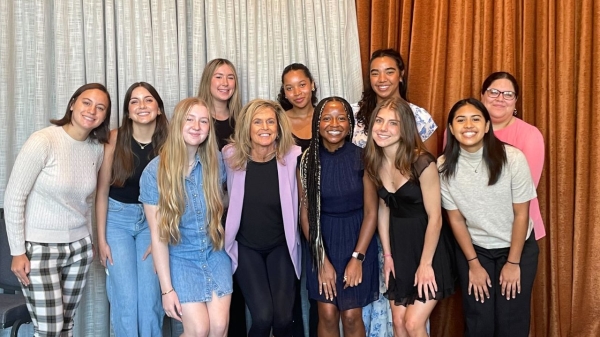
Cronkite School launches Women Leaders in Sports Media live-learn program
Women in a new sports media program at Arizona State University got a solid game plan from a sports veteran at an Aug. 20 welcome…

ASU center to host the Pursuits of Education and Excellence Symposium
The Center for the Study of Race and Democracy (CSRD) at Arizona State University is introducing the Pursuits of Education and…
ASU journalism students dominate NATAS Student Production Award nominations
Students at Arizona State University’s Walter Cronkite School of Journalism and Mass Communication dominated the nominations…
